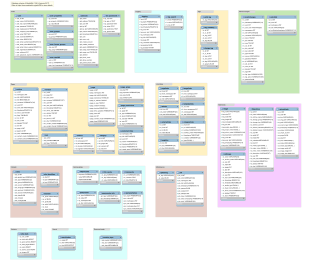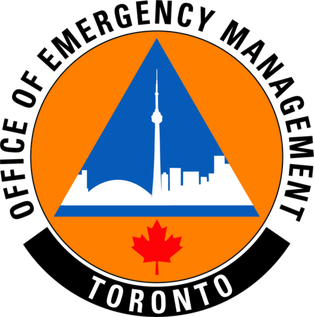OEM is an original equipment manufacturer, a company that makes a part or subsystem that is used in another company's end product.
Contents
OEM may also refer to:
OEM is an original equipment manufacturer, a company that makes a part or subsystem that is used in another company's end product.
OEM may also refer to:

Oracle Corporation is an American multinational computer technology company headquartered in Austin, Texas, United States. In 2020, Oracle was the third-largest software company in the world by revenue and market capitalization. The company sells database software and technology, cloud engineered systems, and enterprise software products, such as enterprise resource planning (ERP) software, human capital management (HCM) software, customer relationship management (CRM) software, enterprise performance management (EPM) software, and supply chain management (SCM) software.

An object–relational database (ORD), or object–relational database management system (ORDBMS), is a database management system (DBMS) similar to a relational database, but with an object-oriented database model: objects, classes and inheritance are directly supported in database schemas and in the query language. In addition, just as with pure relational systems, it supports extension of the data model with custom data types and methods.
The Organization for the Advancement of Structured Information Standards is a nonprofit consortium that works on the development, convergence, and adoption of open standards for cybersecurity, blockchain, Internet of things (IoT), emergency management, cloud computing, legal data exchange, energy, content technologies, and other areas.
MOS or Mos may refer to:

The database schema is the structure of a database described in a formal language supported typically by a relational database management system (RDBMS). The term "schema" refers to the organization of data as a blueprint of how the database is constructed. The formal definition of a database schema is a set of formulas (sentences) called integrity constraints imposed on a database. These integrity constraints ensure compatibility between parts of the schema. All constraints are expressible in the same language. A database can be considered a structure in realization of the database language. The states of a created conceptual schema are transformed into an explicit mapping, the database schema. This describes how real-world entities are modeled in the database.
An oracle was usually a priest or a priestess through whom the gods were supposed to speak or prophesize. In particular:
Set, The Set, SET or SETS may refer to:
ASM may refer to:
OMS or Oms may refer to:
NetApp, Inc. is an American data storage and data management services company headquartered in San Jose, California. It has ranked in the Fortune 500 from 2012 to 2021. Founded in 1992 with an initial public offering in 1995, NetApp offers cloud data services for management of applications and data both online and physically.
The common warehouse metamodel (CWM) defines a specification for modeling metadata for relational, non-relational, multi-dimensional, and most other objects found in a data warehousing environment. The specification is released and owned by the Object Management Group, which also claims a trademark in the use of "CWM".
An office of emergency management (OEM), alternatively called an emergency management office (EMO), or an emergency management agency (EMA) in some areas, is an agency at the local, tribal, state, national or international level that holds responsibility for comprehensively planning for and responding to and recovering from all manner of disasters, whether man-made or natural. An OEM may also be requested to provide consequence management for large special events such as major gatherings, visiting dignitaries, etc.
Oracle Enterprise Manager (OEM) is a set of web-based tools aimed at managing software and hardware produced by Oracle Corporation as well as by some non-Oracle entities.

New York City Emergency Management (NYCEM) was originally formed in 1996 as part of the Mayor's Office under Rudolph W. Giuliani. By a vote of city residents in 2001 it became an independent agency, headed by the commissioner of emergency management. In 2006 the office was reorganized under the deputy mayor for administration by Mayor Michael Bloomberg.
ODM may refer to:
OAM may refer to:
The Office for Emergency Management (OEM) was an office within the Executive Office of the United States President. It was established by administrative order, May 25, 1940, in accordance with executive order EO 8248, September 8, 1939.
Cem Sultan (1459–1495) was a prince of the Ottoman Empire.

The Oklahoma Department of Emergency Management (OEM) is a department of the government of Oklahoma responsible for coordinating the response to a natural disaster that has occurred in the State and that has overwhelmed the abilities of local authorities. This is achieved primarily through the development and maintenance of a comprehensive statewide emergency management plan. OEM is responsible for coordinating the efforts of the federal government with other state departments and agencies, county and municipal governments and school boards, and with private agencies that have a role in emergency management.

The Office of Emergency Management (OEM) is a Division in the City of Toronto responsible for emergency co-ordination for the municipal government in Toronto, Ontario, Canada. Its goal is to "respond and reduce the impact of a public emergency and restore the municipality to a normal state as soon as possible". The OEM is governed by the provincial Emergency Management and Civil Protection Act, which mandates that every municipality in Ontario have an emergency management program.